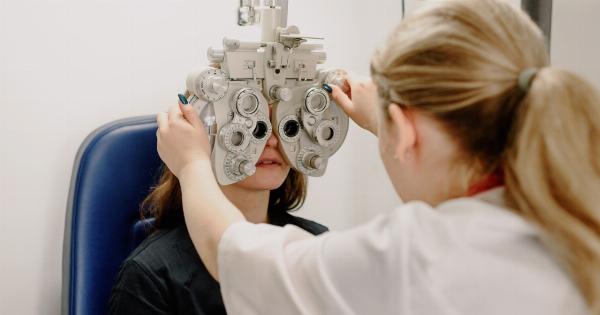Wearing sunglasses is not just about making a fashion statement, but more importantly, it is about protecting your eyes from the harmful rays of the sun.
Whether you are spending a day at the beach, playing sports, or simply walking down the street, it is essential to choose sunglasses that provide optimal eye protection. Not all sunglasses are created equal when it comes to protecting your eyes, so it is crucial to understand what to look for when selecting the right pair.
The importance of UV protection
One of the most important factors to consider when choosing sunglasses is the level of UV protection they offer. UV rays from the sun can cause numerous eye problems, including cataracts, macular degeneration, and even skin cancer around the eyes.
Therefore, it is essential to select sunglasses that block 100% of both UVA and UVB rays for optimal eye protection.
Polarized lenses for glare reduction
Glares from reflective surfaces, such as water, sand, or snow, can cause discomfort and strain to the eyes. Polarized lenses are designed to reduce glare by selectively filtering light waves, allowing only vertically oriented light to pass through.
This feature can greatly enhance your visual comfort and clarity, especially in bright outdoor conditions. When choosing sunglasses for optimal eye protection, consider opting for those with polarized lenses.
Dark lenses do not always mean better protection
Contrary to popular belief, the darkness of the lens does not directly correlate with the level of UV protection provided. Even clear lenses can offer 100% UV protection if they are properly coated.
It is crucial to check for the label indicating the level of UV protection rather than relying on the darkness of the lens. Remember, the important factor is the ability of the sunglasses to block harmful UV rays, not how dark they appear.
Proper fit and coverage
When choosing sunglasses for optimal eye protection, it is essential to consider the fit and coverage they provide. Sunglasses should fit comfortably on your face without slipping or pressing too tightly against your temples or nose.
They should also cover a wide area, including the sides of your eyes, to prevent the entry of peripheral light and UV rays. Sunglasses with wraparound styles or larger frames are often recommended for maximum coverage.
Quality of frame and lenses
Investing in sunglasses with high-quality frames and lenses is crucial for optimal eye protection. Cheaply made sunglasses may not offer the necessary durability and protection, and they may even distort your vision.
Look for sunglasses with sturdy frames made of materials like titanium or high-quality plastic. Additionally, ensure that the lenses are impact-resistant and scratch-resistant for long-lasting use.
Consider prescription sunglasses
If you require prescription glasses or contact lenses, it is worth considering getting prescription sunglasses for optimal eye protection. Prescription sunglasses allow you to enjoy clear vision while protecting your eyes from harmful UV rays.
Consult with your optometrist to discuss the best lens options for your prescription and outdoor activities.
Choose sunglasses that suit your lifestyle
While protection is essential, selecting sunglasses that suit your lifestyle and personal preferences is also important. Sunglasses come in various shapes, sizes, and styles, ranging from classic aviators to trendy oversized frames.
Choose sunglasses that not only provide optimal eye protection but also make you feel confident and comfortable when wearing them.
Regularly check and replace your sunglasses
Over time, the lenses of sunglasses can get scratched, reducing their effectiveness in protecting your eyes. It is important to regularly check your sunglasses for any damage or scratches and replace them when needed.
Additionally, if you notice any changes in the clarity or color of your vision while wearing sunglasses, it may be an indication of lens deterioration, and you should consider getting a new pair for optimal eye protection.
Take care of your sunglasses
Properly caring for your sunglasses will ensure their longevity and effectiveness in providing optimal eye protection. Always clean your sunglasses with a microfiber cloth or sunglass-specific cleaning solution to avoid scratching the lenses.
Store them in a protective case when not in use to prevent accidental damage. Avoid leaving your sunglasses in extreme heat, such as inside a hot car, as this can cause bending or warping of the frame or lens damage.
Conclusion
Choosing sunglasses that provide optimal eye protection is crucial for maintaining good eye health. Look for sunglasses that offer 100% UV protection, consider polarized lenses for glare reduction, and focus on the fit and coverage they provide.
Invest in high-quality frames and lenses, and if necessary, opt for prescription sunglasses. Remember to regularly check and replace your sunglasses as needed and take proper care of them to ensure their effectiveness. By following these guidelines, you can enjoy the outdoors while keeping your eyes safe from harmful rays.





























